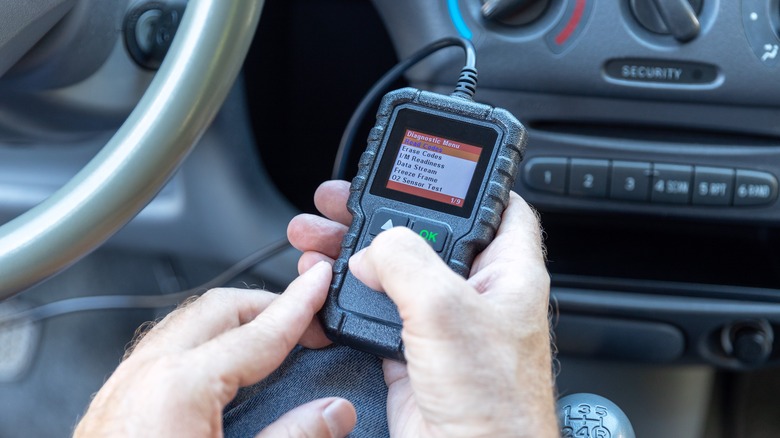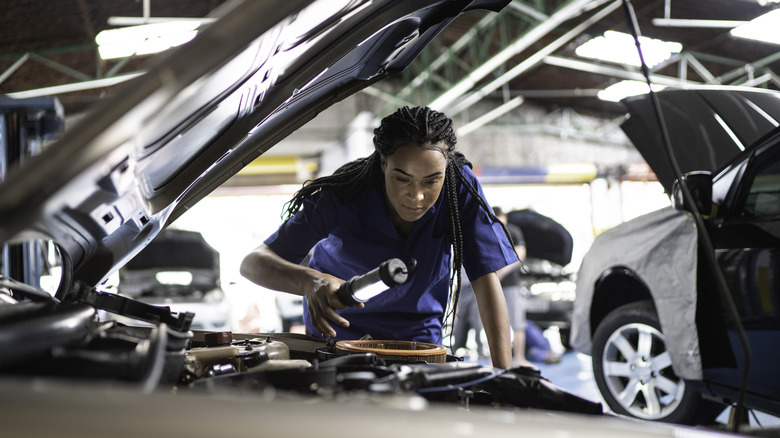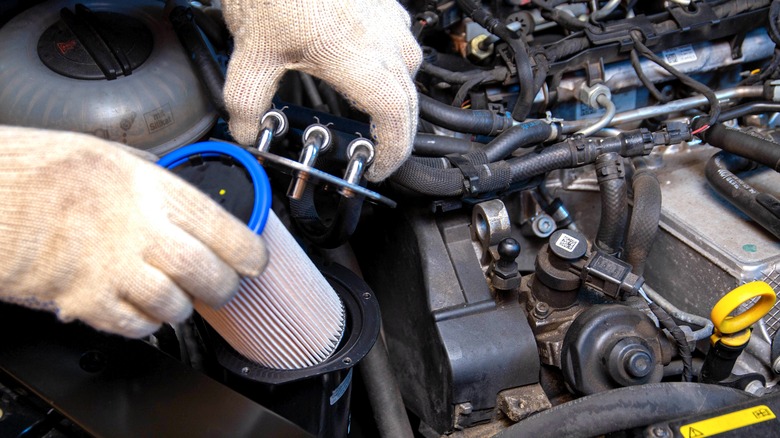P0171 Engine Code: What It Means & What You Should Do To Fix It
That Check Engine light can mean so many different things, as can any noticeable difference in your car's performance or weird sounds. Fortunately, there are ways to narrow down the problem using tools like an OBD2 scanner (short for On-Board Diagnostic) and knowing where to find your vehicle's OBD ports, but a more accurate diagnosis is only part of the process.
Once you have an engine code to work from — in this case, code P0171 — you still have a bit more work to do. While the code may be indicative of a particular engine problem, it doesn't narrow down the cause — of which there can be many.
Something important to note up front is that if your OBD2 scanner ever gives you a P0171 engine code, it's strongly advised that you bring your car into a professional mechanic as soon as possible. Ignoring the problem for too long could lead to significant (and expensive) engine damage over time, or legitimately dangerous consequences in certain circumstances.
What the P0171 code means
As explained by Kelley Blue Book, a P0171 engine code indicates an imbalance in the air-to-fuel ratio of the vehicle's engine. Specifically that there's too much air and not enough fuel making its way into the engine's combustion chamber.
A P0171 code is usually paired with a P0170 code, since both are set off when the powertrain control module (PCM, the car's "brain") detects something wrong with the fuel trim. Though aside from using an OBD2 scanner to assess the codes — or the inevitable Check Engine light — you may also notice your engine is prone to stalling while idling, has trouble starting up in the first place, makes knocking or pinging sounds, or loses power while accelerating.
Coming across a P0171 engine code isn't necessarily cause for immediate alarm, but it should be taken seriously. Once you're aware of the issue, the only driving you do from that point on is to a mechanic. It's not immediately dangerous to keep driving when your engine isn't getting the right mixture of air and fuel, but the longer it runs under those conditions, the higher the chance of long-term and more expensive damage — possibly to valves or the combustion chamber itself. Taking too long to address the problem could also lead to the catalytic converter overheating, which is far more dangerous, as it could cause a fire.
Dealing with a P0171 engine code
The cause of a P0171 code could be as simple as dirty airflow sensors, but you might also be dealing with defective sensors, plugged up fuel filters, jammed fuel injectors, or fuel pumps that are too weak to handle the load. Regardless, the best course of action is to take the vehicle to a qualified mechanic as soon as possible.
There's not much you can do to prevent a P0171 code, unless you know what you're doing and don't mind regularly checking the condition of your fuel system and sensors. Fixing it once something happens can be a relatively inexpensive job, or not. It all depends on what the extent of the actual problem is.
If one of the hoses needs to be replaced or the fuel filter needs declogging, you might only be out around $150 to $200 after diagnostics and labor. If the root cause of the engine's air-to-fuel ratio being off is something bigger — like a busted sensor or failing fuel pump, you can expect a bill anywhere from around $500 to $900.
And that's only to address the P0171 code. If you keep driving with a bad air and fuel mixture, which can cause other kinds of long lasting damage to the engine, you could be looking at thousands of dollars worth of repairs instead. Addressing the issue sooner rather than later could help preserve the life of your engine.


